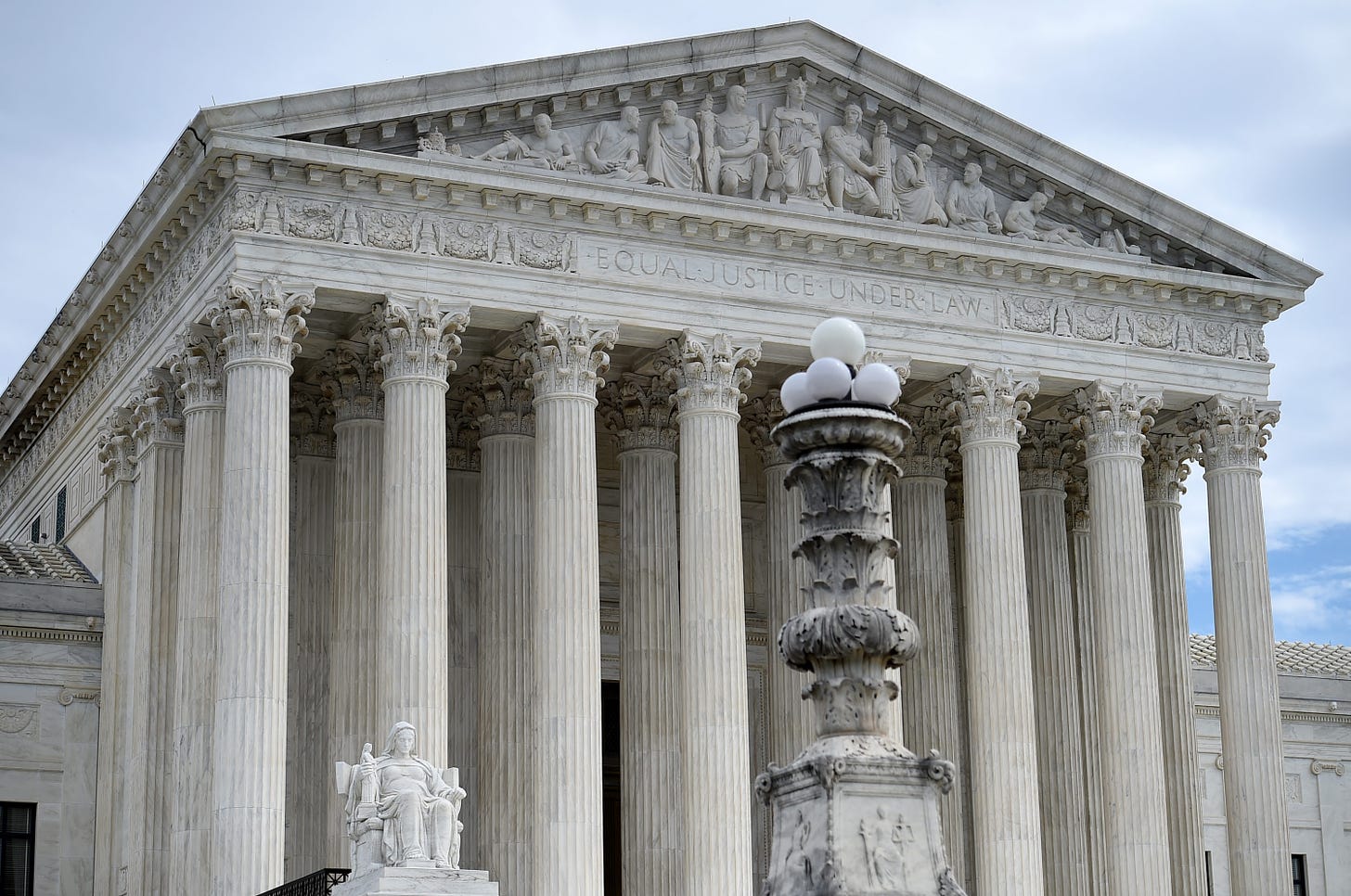
As some Republicans begin to complain about restrictions on liberty, with the attorney general of the United States saying that stay-at-home orders are “disturbingly close to house arrest” and armed protests at Michigan’s state Capitol, it’s worthwhile to return to a century-old Supreme Court case, Lochner v. New York.
Decided in 1905, the case struck down a maximum-hours law aimed at bakers. Conservatives such as Justice Scalia loathed Lochner for protecting a right—the liberty of contract—that was not clearly named in the Constitution. Progressives saw the Lochner decision as hindering legitimate regulations by the states with regard to maximum hours and minimum wage laws.
There is today an ongoing debate about the legitimacy of Lochner, including within originalist circles.
Yet whatever we think of the legitimacy of Lochner, it’s incredibly useful in illuminating the nature and logic of the police powers of the states.
While insisting on a broad understanding of “the liberty of the individual protected by the Fourteenth Amendment,” the Lochner Court nevertheless recognized that liberty was subject to regulation for legitimate public purposes.
Under what have been termed the police powers, the states have wide latitude to regulate for the “safety, health, morals, and general welfare of the public.”
The Court acknowledged, as it did long before and has long after, that the police powers are somewhat vaguely defined. But even from an expansive understanding of liberty, the key question is whether the law or regulation at issue is plainly adapted to a legitimate public purpose. In Lochner, the Court was skeptical that regulating “the hours of labor in the occupation of a baker,” and treating bakers in a manner different from the printer, carpenter, or clerk, was plainly adapted to legitimate concerns of safety, health, morals, or public welfare.
Why bakers? What is the connection between the hours the baker works and “the healthful quality of the bread” he makes? Justice John Marshall Harlan, the great dissenter from Plessy v. Ferguson, also dissented in Lochner, urging that the regulation could be upheld “to protect the physical well-being of those who work in bakery and confectionery establishments.”
Just two months before Lochner was handed down, Justice Harlan wrote an opinion in Jacobson v. Massachusetts that upheld a state law allowing local authorities to require vaccinations. Against an outbreak of smallpox, the city of Cambridge required such vaccinations. The Court, recognizing “liberty itself” as “the greatest of all rights,” nevertheless insisted that it does not include “an absolute right in each person” to be “wholly freed from restraint.” The “safety of the general public” may demand regulations of liberty with regard to public health. All the more so “against an epidemic of disease which threatens the safety of its members.” Indeed, an epidemic might justify regulations we would not ordinarily tolerate if the public health and safety required it.
As the Court recognized in both Jacobson and Lochner, such a power could be abused. Under the guise of regulating for the public welfare—say, preventing the spread of COVID-19—a state might reach into areas that have nothing to do with preventing the spread of disease. We should be concerned with such overreach, which threatens individual liberty or treats similarly situated persons or businesses in an arbitrary manner.
And certainly, tracking the spread of COVID-19 could be used to track individuals for illicit purposes. Such regulations are constitutionally problematic. Consider the classic Supreme Court case along these lines: Yick Wo v. Hopkins (1886).
At issue was a seemingly benign San Francisco city ordinance that allowed laundries housed in brick or stone buildings to operate without restrictions, while requiring that laundries operating out of wooden buildings be licensed. (The idea being to reduce the potential for fires.)
Just a year before, the Court had upheld the regulation of business hours in laundries as a legitimate health and safety measure, also out of concern for fire hazard. But the San Francisco statute seemed to have been inspired by other motives: It turned out that the laundry licensing board, with no explanation, granted permits to laundries operating in wood structures when the applicants were white—but denied them when the applicants were Chinese. Under the guise of public-safety regulations, the city was in fact using the ordinance to discriminate in a wholly arbitrary manner against laundries owned and operated by Chinese immigrants.
The Court ruled unanimously in Yick Wo’s favor: A putative regulation of public safety had been implemented for no other practical reason than “hostility to the race and nationality” of the petitioners, rendering it an arbitrary and unjustified regulation in “the eye of the law.” Incidentally, Yick Wo was a legal resident, not a citizen—but he still had constitutional rights.
None of this is to defend every city or state ordinance with regard to COVID-19. There are real questions of overreach. Yet there’s no question the states have the power to regulate in sweeping ways for the public health. Even the robust sense of liberty articulated by the Lochner Court recognized this in no uncertain terms.
The attorney general’s instruction to his department to be on the lookout for city and state regulations that violate civil liberties would be easier to accept as primarily being about the law had he shown any concern for legal and constitutional violations by the administration he serves.
Perhaps he should take a closer look at the president. Trump’s constitutional stupidity is beyond having to demonstrate at this point. It has done real damage to American constitutionalism over the last three years. But with COVID-19 Trump’s constitutional stupidity has helped exacerbate tragedy.



